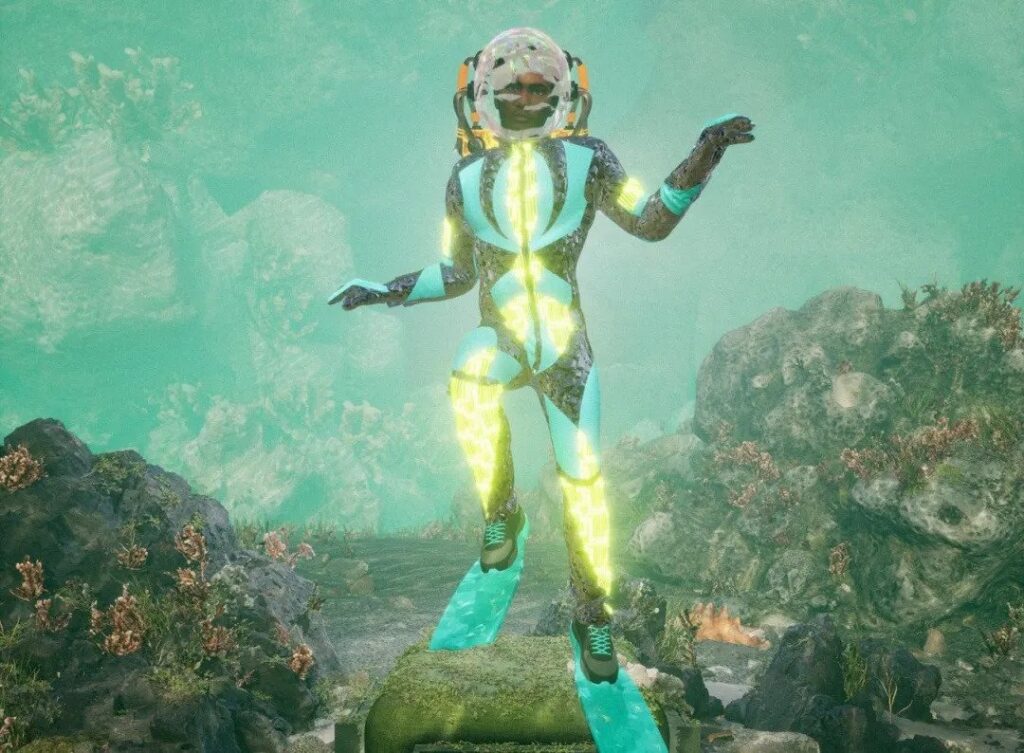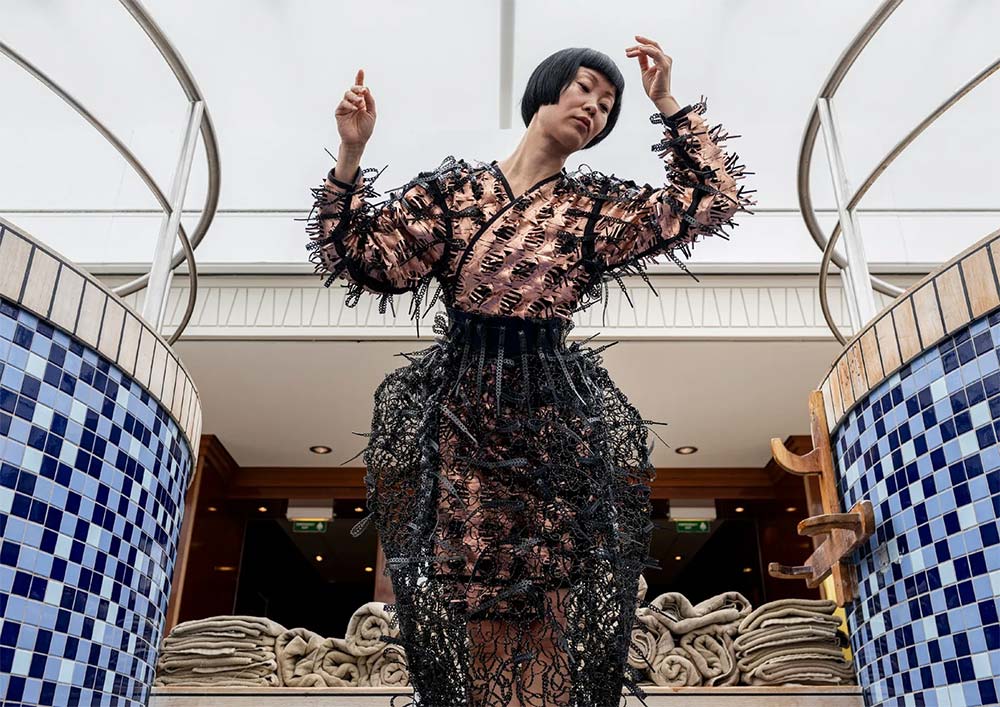Fashioning a Better Future at Ordsall Primary School

Aurélie Fontan, creator of sustainable mushroom-leather, helps more than eighty 9 to 10-year-olds create outfits fit for radically changed extreme climates.
In February 2022, more than 80 children at Ordsall Primary School in Retford, Nottinghamshire, set out to imagine what people might wear in the climate-altered world of 2050. Sustainable fashion pioneer, Aurélie Fontan, guided three classes of children through an intensive six-week co-design project, powered by Climate Change All Change.
Climate Change All Change raises awareness about the climate crisis in primary schools across the UK through the power of design. The charity prompts children to imagine their futures and inspires designers to be emboldened by the unbridled imagination of primary schoolers. Real-world professionals, working at the cutting edge of sustainable design, materials and processes, work with teachers to deliver information about both the climate crisis and how design can offer the tools to adapt to it.
Aurélie Fontan is one of the many designers who work with Climate Change All Change across the UK. Specialists in architecture, landscaping, construction, fashion and other disciplines unite to bring their expertise to the classroom and seek inspiration from fresh young minds. As David Lloyd Jones, architect and co-founder of CCAC has observed: “The interaction between teachers, designers and school children (is) invigorating – a real sense of each party learning from the others.”
Aurélie Fontan – Designer
In 2018, Aurélie Fontan, the leading designer in the Ordsall Primary School co-design project, found herself entering an industry that was perhaps slower than others to acknowledge the encroaching climate emergency and its part in it. The term ‘fast fashion’ had been around for quite a while, but the social and ethical responsibilities (or irresponsibility) that it implies had not been internalised by the fashion industry.
“I was a bit frustrated because back in 2018, nobody really cared about sustainable fashion, especially not in university,” she explained. “I was really frustrated because I could not source a fabric that was really interesting to me to use.”
So she decided to grow her own.
In a bid to avoid the excesses of fast fashion and source sustainable materials and implement circular design principles, Aurélie established her own start-up making leather out of mushrooms. Mycelium is the root part of a mushroom that has almost unlimited growth from very little resources.
“This is a cruelty-free alternative [to real leather], but it’s mainly to replace petrochemical materials.”
Each alternative material seems to have its own inherent ethical or sustainability costs, but in developing this mushroom leather, Aurélie is hoping to pioneer a material that is truly ethical and sustainable. As such, it avoids the use of animal exploitation to create fabrics such as leather or wool, and energy-intensive, pollutant plastics that have been used instead.

Aurélie credits her values to her mother’s upbringing on the Indian Ocean islands of Mauritius. Her mother grew up in a big family on a small island with scarce resources and so it was important to conserve what they had and respect the ecology of the island.
This grew into Aurélie’s modern-day design principles of scale and locality. She does not refer to large-scale but small, using new technologies to develop new crafts that are produced locally, and supply chain transparency to ensure high standards.
It is the antithesis of the unregulated production and consumption of the globalised era. It will be about buying less and buying better.
“You’re not popular once you start saying we need to reduce the scale. Nobody wants to hear what you have to say.
“So you have to be smarter than that.”
The best way to be smarter is not to tell people what they do not want to hear, but to educate them as to the problem and let them make their own conclusions.

Aurélie now runs an interdisciplinary fashion studio, practising sustainable design strategies, new technologies and symbiotic thinking. Aurélie’s work is dedicated to pioneering hybrid new technologies and craftsmanship to push for a change through environmentally conscious designs.
“You’re not popular once you start saying we need to reduce the scale. Nobody wants to hear what you have to say”
– Aurélie Fontan